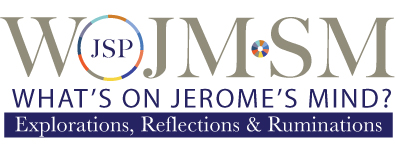My Notebook entry dated August 2, 2013 contains a draft of my ideas.
For me, the language of mystics is a language that expresses the inexpressible. Once we go beyond all concepts and ideas there is nothing to say because words have no meaning. Some folks just sit in silence; some hum; some “speak in tongues.” Since is an ultimate experience, the body/mind drops away, we lose our familiar capacities to feel and to express. So consequently, what we express is what we feel after having come out of that experience. It’s like coming out of a deep sleep where there is no sense of having slept but with the recognition that for some time there was no awareness of any activity. Once we move into activity, we realize we were had been inactive.
So much of the language of mystics has to do with leading up to and coming out of that period of inactivity or period of non-awareness.
With the number of people trying to express the inexpressible and with all the media outlets and opportunities, we may be facing a “mystical overload.” With each mystical experience being an individual one and with each individual with a media outlet, there are “voices” everywhere now.
But while we might be in a period of “mystical overload,” there doesn’t seem to be any decline interest in the various expressions. Clearly there are those who garner a larger audience. The audience goes from an “audience of one” to a world-wide one.
It seems that one of the imperatives of “today’s age” is for each person to have a “mystical experience” and a “mystical voice.”
It’s part of what I’m calling — to paraphrase Beck — a “God of One’s Own Movement.” The “conversion experience” or the “enlightenment experience” is fundamentally an “individual experience.” This aligns with my notion that all knowledge is fundamentally “self-knowledge.” Until there is an individual reference point, there is no “knowing.” If you
don’t get it, you don’t get it.
The more one moves from an “audience of one” to a worldwide one, the more they are able to develop a language and technique (a practice) that is easily accessible and duplicated.

